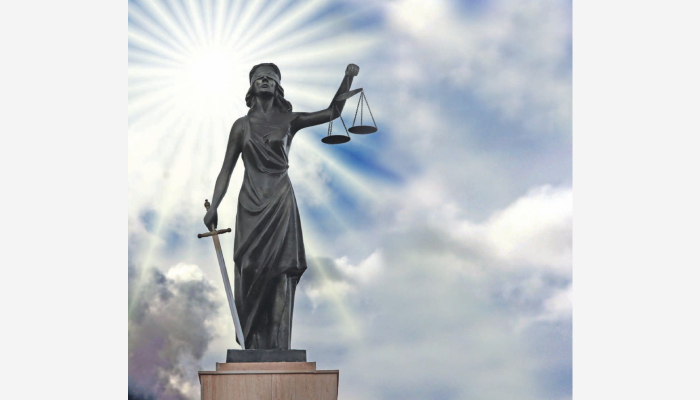
or

The age-old conflict between individual right to privacy and the investigator’s need to intrude in order to find clues through tests like narco-analysis recently came to an end with an emphatic ‘No’ from the Supreme Court to these invasive tests involving chemicals and electronics. The statements issued by the Police and the media representations make us believe that truth serum brings out the truth from a criminal. It is also assumed that the narco test discloses the ‘reality’ of the accused or that brain mapping reveals the information stored in the brain. The apex court dispelled the myth of these truth tests and declared that truth cannot be tested by them.
In Karnataka, one girl Kavitha had married Shivakumar belonging to a different caste, against the wishes of her family. Later the husband Shivakumar was brutally killed in 2004. Police suspected Selvi, mother of Kavitha, and two others for the crime. In the absence of direct evidence, the prosecution was totally depending on circumstantial evidence. It wanted the court’s permission to conduct polygraphy and brain-mapping tests on the three suspects. With the court’s permission they conducted both the tests, which they said, indicated deception. To secure some more information the investigators wanted to conduct narco-analysis on those three persons. The magistrate conceded the request. Aggrieved by this order, they approached Karnakata High Court. Having failed there as well, they moved the Apex Court, where they not only succeeded, but also contributed to development of law against these tests.
The Supreme Court rightly held the use of narco analysis, brain-mapping and polygraph tests on accused, suspects and witnesses, without their consent, as unconstitutional and violation of the ‘right to privacy’. In Smt Selvi and others vs State of Karnataka, (MANU/SC/0325/2010), a three-Judge Bench of K.G. Balakrishnan, CJ (then) and Justices R.V. Raveendran and J.M. Panchal, held that no individual should be forcibly subjected to any of the techniques in question, whether in the context of investigation in criminal cases or otherwise. Doing so would amount to an unwarranted intrusion into one’s personal liberty, the bench laid down.
The tests, without consent, will directly hit the fundamental right of every person against self incrimination. The dictum is clear: the test results cannot be admitted in evidence if they have been obtained through the use of compulsion. Article 20(3) of the Constitution, which said that ‘no person accused of any offence shall be compelled to be a witness against himself’, protects an individual’s choice between speaking and remaining silent, irrespective of whether the subsequent testimony proves to be inculpatory or exculpatory.” Explaining the scope of this fundamental right, the Bench said: “Article 20 (3) aims to prevent the forcible conveyance of personal knowledge that is relevant to the facts in issue. The results obtained from each of the impugned tests bear a testimonial character and they cannot be categorised as material evidence.”
It is constitutional base of the fair system of criminal justice that requires the accusing department to prove the accusation, and not the accused himself. In this context narco analysis is considered as one of the mechanisms chosen by prosecution to make accused to incriminate himself. The Bench made it clear that even when the subject had given consent to undergo any of these tests, the test results by themselves could not be admitted as evidence because “the subject does not exercise conscious control over the responses during the administration of the test… …. Notwithstanding the fact that its judgment would benefit hardened criminals who had no regard for societal values, the court had a constitutional right to protect the rights of citizens….” After the famous Nandini Satpathy case [(1978) 2 SCC 424] on article 20(3), this judgment is yet another landmark. There was no specific decision earlier about validity of these tests.
The judgment in Selvi case is an exhaustive database for all the three tests, their scientific background, utility, legal validity as explained by various world courts, besides an analysis of right against self incrimination under constitutional law. With this, one can understand the science and law, truth and untruth about these so called “truth tests”. The ultimate message is that rights cannot be compromised for the sake of some clues whose veracity is doubted, and increasing efficiency of investigation is the only remedy rather than these unscientific tests in the name of science.
Madabhushi Sridhar is Professor and Coordinator, Center for Media Law & Public Policy, NALSAR University of Law, Hyderabad.

Lex Witness Bureau

Lex Witness Bureau

For over 10 years, since its inception in 2009 as a monthly, Lex Witness has become India’s most credible platform for the legal luminaries to opine, comment and share their views. more...
Connect Us:


The Grand Masters - A Corporate Counsel Legal Best Practices Summit Series
www.grandmasters.in | 8 Years & Counting
The Real Estate & Construction Legal Summit
www.rcls.in | 8 Years & Counting
The Information Technology Legal Summit
www.itlegalsummit.com | 8 Years & Counting
The Banking & Finance Legal Summit
www.bfls.in | 8 Years & Counting
The Media, Advertising and Entertainment Legal Summit
www.maels.in | 8 Years & Counting
The Pharma Legal & Compliance Summit
www.plcs.co.in | 8 Years & Counting
We at Lex Witness strategically assist firms in reaching out to the relevant audience sets through various knowledge sharing initiatives. Here are some more info decks for you to know us better.
Copyright © 2020 Lex Witness - India's 1st Magazine on Legal & Corporate Affairs Rights of Admission Reserved